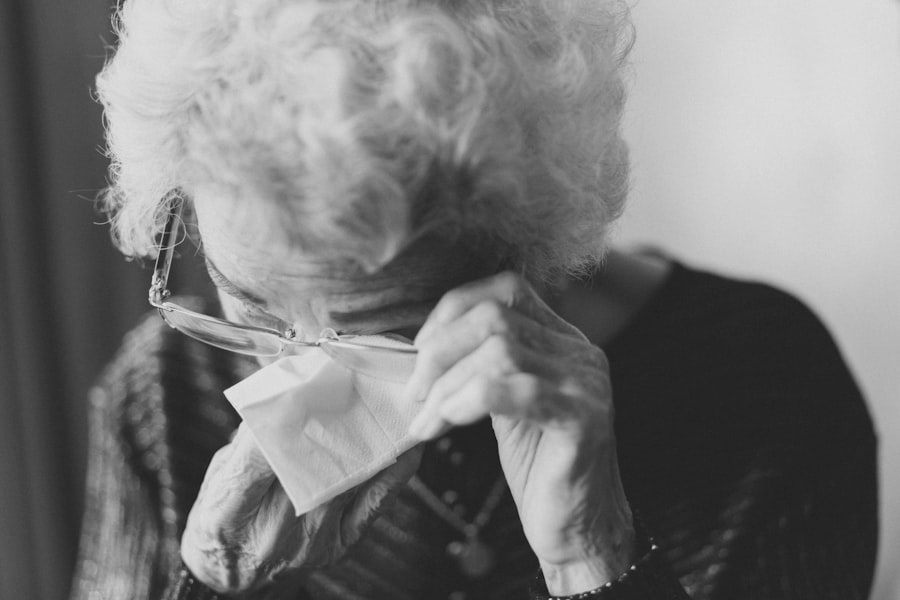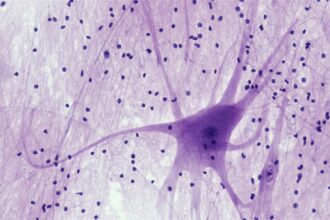Grief is a complex and deeply personal experience that everyone encounters at some point in their lives. It is not merely a reaction to loss but a multifaceted process that encompasses a range of emotions, thoughts, and physical sensations. As you navigate through grief, it’s essential to recognize that there is no right or wrong way to grieve.
Each person’s journey is unique, shaped by their relationship with the person or thing they have lost, as well as their individual coping mechanisms and life experiences. Understanding this process can help you approach your feelings with compassion and patience. The stages of grief, often referred to as the Kübler-Ross model, include denial, anger, bargaining, depression, and acceptance.
However, it’s crucial to remember that these stages are not linear; you may find yourself moving back and forth between them or experiencing them in a different order altogether. This fluidity can be confusing, but it’s a natural part of the grieving process. By acknowledging your feelings and allowing yourself to experience them fully, you can begin to understand the depth of your grief and how it impacts your life.
Key Takeaways
- Grief is a natural and individual process that involves a range of emotions and reactions.
- Signs of grief can include emotional, physical, and behavioral symptoms such as sadness, fatigue, and withdrawal.
- Coping strategies for dealing with grief may include seeking professional help, engaging in self-care practices, and finding meaning and purpose in the midst of loss.
- Seeking support from loved ones can provide comfort and validation during the grieving process.
- Professional help, such as therapy or counseling, can offer valuable support and guidance for individuals experiencing grief.
Recognizing the Signs of Grief
Recognizing the signs of grief is an important step in acknowledging your feelings and understanding what you are going through. Grief can manifest in various ways, both emotionally and physically. You may find yourself feeling an overwhelming sense of sadness or emptiness, which can sometimes be accompanied by feelings of anger or frustration.
These emotions can be intense and may catch you off guard, especially if you are not prepared for the depth of your sorrow. In addition to emotional signs, grief can also present itself through physical symptoms. You might experience fatigue, changes in appetite, or difficulty sleeping.
These physical manifestations can be just as challenging as the emotional ones, as they can affect your daily life and overall well-being. By recognizing these signs, you can begin to validate your experience and understand that what you are feeling is a natural response to loss.
Coping Strategies for Dealing with Grief

Finding effective coping strategies is essential for navigating the tumultuous waters of grief. One of the most beneficial approaches is to allow yourself to feel your emotions without judgment. This means giving yourself permission to cry, express anger, or even laugh when memories arise.
Embracing these feelings can be cathartic and help you process your grief more effectively. Another helpful strategy is to establish a routine that incorporates activities that bring you comfort and joy. Whether it’s taking a walk in nature, engaging in creative pursuits like painting or writing, or simply spending time with friends and family, these activities can provide a sense of normalcy amidst the chaos of grief.
Additionally, journaling can be a powerful tool for self-reflection, allowing you to articulate your thoughts and feelings in a safe space.
Seeking Support from Loved Ones
| Support from Loved Ones | Percentage |
|---|---|
| Seeking emotional support | 75% |
| Seeking advice | 60% |
| Seeking financial support | 40% |
| Seeking help with daily tasks | 50% |
Reaching out for support from loved ones can be a vital aspect of coping with grief. While it may feel daunting to share your feelings with others, connecting with those who care about you can provide comfort and understanding during this challenging time. Friends and family members often want to help but may not know how to approach the subject of your loss.
By initiating conversations about your feelings or simply sharing memories of your loved one, you can create an open dialogue that fosters connection and healing. It’s also important to remember that support doesn’t always have to come from those closest to you. Sometimes, talking to someone outside your immediate circle—such as a colleague or a neighbor—can offer a fresh perspective and alleviate some of the emotional burden.
Engaging in support groups or community resources can also be beneficial, as they provide a safe space for individuals who are experiencing similar losses. Sharing your story with others who understand can help you feel less isolated in your grief.
Professional Help for Grieving Individuals
While seeking support from friends and family is invaluable, there may come a time when professional help becomes necessary. Grief counselors or therapists who specialize in bereavement can provide guidance and support tailored to your specific needs. They can help you navigate the complexities of your emotions and offer coping strategies that may not have occurred to you on your own.
Professional help can also be beneficial if you find that your grief is interfering with your daily life or if you are experiencing prolonged feelings of despair. A mental health professional can assist you in processing your grief in a healthy way, helping you to develop resilience and find ways to move forward. Remember that seeking help is not a sign of weakness; rather, it demonstrates strength and a commitment to healing.
Finding Meaning and Purpose in the Midst of Grief

In the aftermath of loss, finding meaning and purpose can feel like an insurmountable challenge. However, many individuals discover that their grief journey leads them to new insights about themselves and their lives. Reflecting on the life of the person you lost can inspire you to honor their memory by living more fully or pursuing passions that may have been set aside.
This process of finding meaning can be transformative, allowing you to create a legacy that celebrates their life while also enriching your own. Engaging in activities that align with your values or interests can also help you cultivate a sense of purpose during this difficult time. Whether it’s volunteering for a cause that was important to your loved one or pursuing new hobbies that bring you joy, these actions can provide a sense of fulfillment amidst the pain of loss.
By actively seeking meaning in your grief, you may find that it becomes a catalyst for personal growth and renewal.
Embracing Self-Care and Mindfulness Practices
Self-care is an essential component of navigating grief effectively. During this time, it’s crucial to prioritize your physical and emotional well-being. Simple acts such as ensuring you eat nutritious meals, getting enough rest, and engaging in regular physical activity can significantly impact how you cope with grief.
Additionally, incorporating mindfulness practices into your daily routine can help ground you amidst the emotional turmoil. Mindfulness techniques such as meditation, deep breathing exercises, or yoga can foster a sense of calm and presence in the moment. These practices encourage you to acknowledge your feelings without becoming overwhelmed by them.
By cultivating mindfulness, you create space for self-compassion and acceptance as you navigate the complexities of grief.
Letting Go of Guilt and Regret
Guilt and regret often accompany grief, manifesting as thoughts about what could have been done differently or feelings of inadequacy regarding how one has coped with loss. It’s essential to recognize that these feelings are common but do not define your experience. Allowing yourself to let go of guilt involves acknowledging that no one is perfect and that everyone copes with loss in their own way.
To release these burdensome emotions, consider writing down your feelings or discussing them with someone you trust. This act of externalizing your thoughts can help diminish their power over you. Remember that it’s okay to seek forgiveness from yourself; after all, grieving is an incredibly challenging process that requires time and patience.
Creating a New Normal After Loss
As time passes, creating a new normal becomes an essential part of healing from grief. This doesn’t mean forgetting about your loved one; rather, it involves finding ways to integrate their memory into your life while also allowing yourself to move forward. Establishing new routines or traditions can help create a sense of stability amidst the changes brought on by loss.
You might consider commemorating special dates or milestones by engaging in activities that honor your loved one’s memory—such as lighting a candle on their birthday or participating in an event they enjoyed. These rituals can provide comfort while also allowing you to embrace new experiences that contribute to your evolving identity after loss.
Finding Hope and Resilience in the Face of Grief
Amidst the pain of grief lies the potential for hope and resilience. While it may feel impossible at times, many individuals discover that they possess an inner strength they never knew existed. This resilience often emerges through small acts of courage—whether it’s reaching out for support, trying new activities, or simply getting out of bed each day.
Cultivating hope involves recognizing that healing is possible and that joy can coexist with sorrow. Surrounding yourself with positive influences—whether through uplifting literature, inspiring podcasts, or supportive friends—can help nurture this sense of hopefulness as you navigate your grief journey.
Moving Forward and Finding Peace
Ultimately, moving forward after loss does not mean forgetting; rather, it signifies finding peace within yourself as you carry the memory of your loved one forward into your life. This journey may take time and will likely involve ups and downs along the way. Embracing the ebb and flow of emotions allows for healing while honoring the love shared with those who have passed.
As you continue on this path toward healing, remember that it’s okay to seek joy again while still holding space for your grief. Finding peace means accepting both the light and dark aspects of life—acknowledging that love endures even in the face of loss. By embracing this duality, you open yourself up to new possibilities while cherishing the memories that will forever remain in your heart.
In the journey of healing, understanding how to stop running from grief is crucial for emotional well-being. An insightful article that delves into this topic can be found on Unplugged Psychology’s website. It offers practical advice and strategies to confront and process grief rather than avoiding it. For more in-depth guidance, you can read the full article by visiting Unplugged Psychology. This resource provides valuable perspectives on embracing grief as a part of the healing process, helping individuals to navigate their emotions with greater resilience and understanding.
🧠 😶🌫️ The Detachment Trap: Why “Spiritual Bypassing” Will Never Lead to Enlightenment
FAQs
What is grief?
Grief is a natural response to loss, such as the death of a loved one, the end of a relationship, or a major life change. It can manifest as a range of emotions, including sadness, anger, guilt, and confusion.
Why do people run from grief?
People may run from grief because they find it overwhelming or painful to confront. They may also fear that facing their grief will make it worse or that they will be unable to cope with the emotions it brings up.
What are the consequences of running from grief?
Running from grief can lead to prolonged emotional distress, unresolved feelings, and difficulty in moving forward with life. It can also impact mental and physical health, as well as relationships with others.
How can one stop running from grief?
Stopping running from grief involves acknowledging and accepting the emotions associated with the loss, seeking support from others, and finding healthy ways to express and process the grief. This may include therapy, support groups, and self-care practices.
What are some healthy ways to cope with grief?
Healthy coping strategies for grief include talking about the loss with supportive individuals, engaging in activities that bring comfort and solace, practicing self-compassion, and allowing oneself to grieve at their own pace. It’s important to seek professional help if the grief becomes overwhelming.




